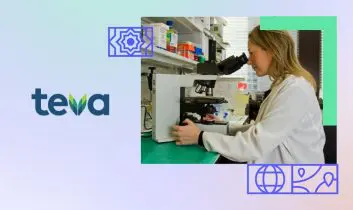
What is Technical Translation?
Generally, technical content is particular and requires utmost accuracy and precision when translating into other languages. As more organizations, including those in the scientific field, seek global audiences, multilingual translation of technical documentation is becoming a critical part of the expansion strategy. Understanding the nuances of technical language translation is essential in maintaining content quality regardless of the subject’s complexity.
Here we discuss everything you need to know about professional technical translation, including what to consider when choosing a technical translator.
Technical translation vs Literal translation
Technical translation and literal translation are two distinct approaches employed in the field of language translation. Technical translation prioritizes accuracy and precision in conveying specialized content, such as scientific, medical, or engineering documents. It focuses on maintaining the integrity of technical terminology, ensuring that the target audience comprehends complex concepts exactly as intended by specialized translators. This approach may involve rephrasing sentences to adhere to the linguistic norms of the target language while preserving the original meaning.
On the other hand, literal translation concentrates on rendering text from the source language to the target language word-for-word, without much concern for idiomatic expressions or cultural nuances. While this method might be suitable for basic communication, it often fails to capture the depth and context of the original text, leading to awkward or confusing phrasing.
Choosing between these approaches depends on the content, purpose, and audience of the translation. Technical translation suits more specialized translation domains, while literal translation can suffice for general text. However, achieving a balance between accuracy and readability is vital for producing effective translations.
What is Technical Terminology?
Technical terminology refers to terms or phrases with specific meanings whose use is restricted to certain fields. These vocabularies usually make communication among professionals in particular fields concise and unambiguous. For example, the pelvis is a medical terminology referring to the hipbone. Translating technical texts requires a good grasp of these technical terms. Using professional technical translation services when translating such texts is expedient.
Translating Technical Texts
Technical translation involves translating materials or documents produced by experts in fields that use specialized terminologies. Typically, it entails translating texts in scientific fields and other technical terminology-laden subjects. Unlike other types of translation, content translation in these particular fields requires in-depth knowledge of the subject matter and specific skill sets. Thus, a technical translator must have special training and exceptional translation skills.
The demands of technical language translation are unique and higher than other types of translation. Similarly, translating technical texts is costlier and more time-consuming than simple content translation tasks.
Common Technical Document Translation Materials
The need for technical word translation varies from one technical field to another, depending on the potential consequences of mistranslation. Some of the specialized materials and documents that require translation include:
Patents
For patent writing and translation, a knowledge of the industry, and scientific and technological information, especially the patented product, is a must-have. Patents must comply with legal and practical requirements. Such content usually encompasses extensive claims of a patented product without revealing much in terms of information on how the product works, as disclosing certain details can limit the scope of the patent.
Thus, it will take a technical translator experienced in working with patents to meet the requirements of the business or person applying for the patent. In other words, patent translation combines knowledge, skills, and creativity.
User Manuals
User manuals are a type of technical writing that aims to inform readers how to use a product and perform specific tasks. Translating a user manual into target languages can require intricate technical knowledge depending on the complexity of the product and its instructions. So it’s essential to use a translator who understands how to use an objective, instructional tone to translate the guidelines into simple, clear, technical terminology—thereby making it relatively easier for everyone to understand the translated manual in the target language.
Accurate translation of user manuals is mandatory, as even the slightest mistake could lead to severe safety issues and harm the brand’s reputation. This is why technical translators are the only ones who should be trusted to handle this sensitive type of material.
Software Strings
Translation of software strings for the user interface is another type of technical translation. To the casual eye, user interface tends to be simply worded. As a matter of fact, a translator translating technical documentation needs to have in-depth knowledge of the technical terminology. In most cases, software strings feature abbreviations the translator should translate correctly into the target language.
Scientific, Engineering, and Technical Articles
The scientific, technical, and engineering content translation niche is a challenge for translators. For one, proper knowledge of the field and firm understanding of the specific terminology is a prerequisite. Being fluent in both one language of the source and the target language is not enough – a translator also needs to have a solid background in the field, as these articles have high standards for publication in journals and news sources.
Preparing Technical Documents for Subsequent Technical Translation
Before embarking on technical, scientific translation projects and the like, gather materials, references and other important details necessary for producing premium-quality work. The preparation entails:
Planning ahead
Take some time and carefully think of how you want the technical writing to be done. Consult an experienced technical translator and provide them with all the relevant documents in suitable formats. Convert the files into editable formats to ease the translation process further. If you have past translations, glossaries, images and terminologies that might help speed up and better the translation, submit them to the selected language translation service provider.
Determine the target audience
Knowing the reading and comprehension level of the target audience informs the tone and language complexity used when translating scientific or technical knowledge content. Sometimes, it might be necessary to use graphics in illustrating texts and ensuring the users understand the content well.
Determine the purpose of the content
Ensure you define what the translation should accomplish. For instance, if you’re translating content to promote the brand, inform the translator so that they use language appropriate to the target market. Determine how critical the translation is and how frequently the document will be read. Most people usually avoid lengthy texts. So, take this into account when translating technical documents.
Why Use a Technical Translator?
Besides requiring a skilled and experienced translator for a distinct language pair, technical translation is harder to decipher and demands intricate multitasking on multiple levels of translating.
Hiring professional technical translation experts is the only option when translating volumes of technical content. Besides boasting excellent translation skills, the translator must have specific knowledge in the applicable subject matter, whether software engineering, mechanics, or various scientific fields. Translators who provide technical translation services understand exactly what the technical expertise it takes to ensure accurate translation of technical materials using the required terminology and abbreviations.
Assuming the technical translation requires the project has to make use of specific jargon, you can count on a technical translator to get it right. Not only will a technical translator hit the mark on the detailed glossary of terms, but they will also add more value to the outcome.
How to Choose the Best Professional Technical Translation Services Providers
Finding a dedicated and client-oriented translation company is key to obtaining technical translations with the highest precision and accuracy. When selecting a professional translation service, features to consider include content localization capabilities, customer support, quality assurance process and experience.
BLEND has accredited technical translators for any language pair to complete your next project successfully. You can submit smaller, more straightforward, or personal projects through BLEND Express, but if you have more complex technical content that needs localization, contact our sales team.
Need fast, high-quality translation?
Translate nowWhat our customers are saying







